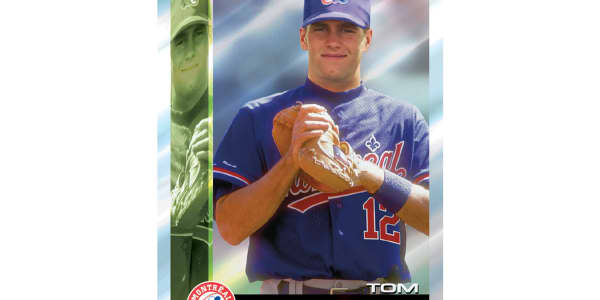With the tuner now tucked slyly between the Bluetooth and auxiliary options on car dashboards, the days when FM radio reigned as the nucleus of musical enjoyment are fading.
Music enthusiasts are turning to personalized streaming services such as Spotify, Sirius XM's Pandora and Apple Music to find their next favorite artist. "Clock radios" are joining the ranks of clamato juice as product combinations that once made sense but now feel dated and unnecessary.
The rapid transformation in consumer listening preferences has led Larry Miller, the director of New York University's music business program and host of the "Musonomics" podcast, to predict FM radio is near a breaking point.
"I think that we're in the last decade of influence the way we grew up with radio's influence on music listenership," Miller said.
For more on iconic global companies and executives embracing change and transforming for the future, click here to join us live at CNBC Evolve, a summit for business decision makers seeking to innovate.
A former disc jockey himself, Miller pointed to the downward trend in radio station valuations to prove his point.
Earlier this year, Cumulus Media sold flagship radio stations in New York City, Los Angeles, Washington D.C., Atlanta, and San Francisco to the nonprofit Christian broadcasting company EMF for $103 million. Disney's 1995 merger with Capital Cities saw ABC Radio, WABC, and WPLJ alone valued at over $130 million, according to Miller.
"This is the lowest pricing and by far the lowest multiples that I've seen in decades of looking at this stuff," Miller said.
This past July, Emmis Communications sold their majority stakes in its Austin and New York City radio stations. The company is planning to use the $88 million in proceeds from the sale to invest in "non-radio companies with a higher growth profile." Investors responded positively, sending the stock to a four-year high. Miller believes this reaction was in part because investors were happy to obtain any price in the declining market.
Perhaps more alarming is the trend in radio advertising revenue, the primary form of financial sustenance for radio stations.
"I mean you'd have to pull out a magnifying glass in order to find any nominal growth," Miller said. "If you were to look for real growth, it's absolutely negative."
Real revenue for terrestrial radio advertising has indeed declined every year since 2015, according to data obtained from PwC.
Both iHeartMedia and Cumulus Media, the nation's two largest radio station providers, have filed for Chapter 11 bankruptcy protection within the last two years. In a novel corporate move, iHeart recently did something that copied from Spotify: it directly listed its shares on an exchange — in its case Nasdaq — as a way to bring in new investors. The direct listing as an alternative to an initial public offering has been expected of high-profile start-ups, but not a heavily indebted legacy company.
Bob Pittman, CEO of iHeartMedia, said that bankruptcy was pursued only to shift the company towards an equity-focused capital structure — it was able to unload debt — and should not be read as a knock on its operating success.
Pittman said iHeartMedia has seen year-over-year revenue growth 22 of the last 24 quarters, but the growth has been slow. For the fiscal year 2018, iHeartMedia generated $3.6 billion in revenue, $50 million in net income, and $976 million in adjusted EBITDA, according to an SEC filing.
Pittman cited the rise of internet radio and podcasting as potential sources for growth — iHeartMedia owns over 850 stations and is the second-biggest publisher of podcasts after an acquisition last year, according to research firm Podtrac.
Since iHeartMedia's transition to a direct listed stock in mid-July, shares have fallen.
We are not providing music to people. We are providing companionship to people. If you go into this thinking our job is to put music on, you'll miss the point.Bob PittmaniHeartMedia CEO
The easiest culprit to blame is music streaming, which now accounts for 75% of the music industry's revenue. Sixty-six percent of people list Pandora, Spotify, or Apple Music as their most-used audio brand, according to a 2019 Edison Research study. Only 8% cited iHeartRadio.
While adults speak of their favorite childhood radio station with a sense of nostalgia only a John Hughes movie could rival, this intense passion seems to be faltering as well. In a recent MusicWatch survey, only 34% of respondents reported loving AM or FM radio. Spotify, Apple Music, and Pandora came in at 78%, 65%, and 51% respectively. Streaming services from Amazon, Google, and YouTube have clouded the market as well, although they have yet to gain similar levels of traction.
Larry Rosin, president of Edison Research, does not believe the death of FM radio is imminent, saying it was never just about the music.
"If someone only ever liked radio for the music and nothing else, they have moved on," Rosin said. "But for the overwhelming majority of radio users then and now ... it's more of a full-flower experience, even including the ads."
The case for music radio
Listening data shows how resilient radio is against the streaming competition.
In the first quarter 2019, adults in the U.S. still spent an average of 102 minutes a day tuned in to the radio, even if this represented a 3.77% decline from the previous year, according to data obtained from Nielsen. Around 45% of this listening takes place in the car while an additional 21% takes place at work. 31% occurs in-home.
Pittman is not worried about iHeartMedia's bottom line being cannibalized by streaming services.
"Those are two separate businesses. They always have been," Pittman said. "Spotify is not a competitor to the radio."
He contends an individual's personal music collection has traditionally been held separate from their radio listening habits. Despite facing attacks from CDs, cassettes, and digital downloads in the past three decades, radio still reaches over 90% of adults in the U.S., touching more people than smartphones or even TV.
The challenge presented by streaming is different than a rack of 90s CDs. Both Spotify and Apple Music offer music libraries of over 50 million songs, making them much more than just personal music libraries for their users.
Pittman, who got into the industry as a DJ at the age of 15, has a response: iHeartMedia does not view itself as being in the music business anymore.
"We are not providing music to people. We are providing companionship to people," Pittman said. "If you go into this thinking our job is to put music on, you'll miss the point."

A Bridge Ratings study confirmed the importance of this sense of community radio offers, with 75% of respondents agreeing companionship is part of the reason they listen. The only factor that ranked higher than companionship was "ease of use," with 89% of participants citing it as a reason they listen to the radio.
"Radio [has] a lifetime of habituation for people," Rosin said. "You get in the car, you turn it on, and the radio just comes on ... it's just married to the experience on so many levels."
But technological improvements to the car dashboard, such as Apple's CarPlay, are posing a threat to this ease of use, according to Miller. In a recent report, he stated car companies are continuing to move the FM radio tuner further and further away from the center of the car's entertainment system. If this trend continues, music streaming could gain the edge in the "ease of use" category, as it arguably already has done on some dashboards.
Miller does still admire the broad reach radio has and its ability to provide context to music in ways not possible on lifeless Spotify playlists. He also believes radio is far better at providing "frequency" than music streaming – in other words, no one can beat you over the head with Taylor Swift's new single like pop radio.
The format can survive even if FM doesn't
The long-term viability of FM music radio may be in question, but it appears the content format is here to stay.
Apple Music's Beats 1 radio station has brought renewed life to the concept of a radio show by bringing together internationally-known radio personalities with worldwide broadcasting. Spotify also recently launched a personalized "Your Daily Drive" playlist, which mimics FM radio by combining music selections with short-form podcasts.
Spotify is still losing money. It reported a loss of 47 cents per share in the most recent quarter.
Miller believes Spotify has been eyeing the terrestrial radio business for quite some time and views the new feature as their first foray into it.
"I've listened to it a couple of times, and it's not a bad version of really good news with a handful of tunes that I want to hear anyway," Miller said.
Spotify's decision to add this feature is one of the reasons Rosin does note foresee a death for FM radio in the near future.
"There's a reason they're copying what radio does," Rosin said. "It has that companionship angle to it."
But Rosin does not expect consumers to care too much about the possible demise of FM radio so long as there are adequate ways for them to receive the entertainment FM radio currently offers.
"They care about the content. They don't care about the transmission vehicle of the content," he said. "Will FM necessarily be how it makes its way from the producer to you? I don't know. But will the content that is currently mostly consumed on FM still probably have a major part in people's lives? Yeah, I think the odds are very good."






